Search
Remove Ads
Advertisement
Summary 
Loading AI-generated summary based on World History Encyclopedia articles ...
Search Results
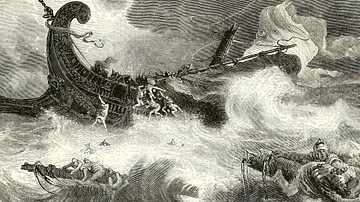
Definition
Yamm
Yamm (from the Semitic word yam for 'sea', also known as Yam and Yam-Nahar) was the god of the sea and storm in the pantheon of the Canaanite-Phoenicians. Depicted consistently as tyrannical, angry, violent, and harsh, Yamm was the brother...
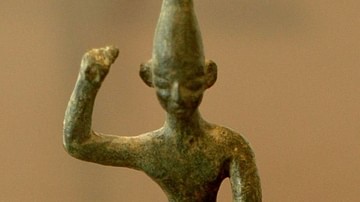
Definition
Baal
Baal (also given as Ba'al) is a Canaanite-Phoenician god of fertility and weather, specifically rainstorms. The name was also used as a title, however, meaning "Lord" and was applied to a number of different deities throughout the ancient...

Definition
Astarte
Astarte is the Canaanite/Phoenician goddess of love, sex, war, and hunting who developed from the Mesopotamian deity Inanna/Ishtar. She is usually associated with the storm god Baal but seems to have been much more popular. She traveled to...
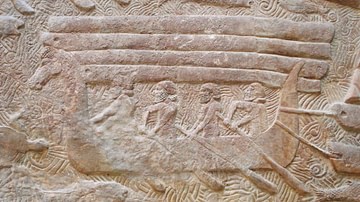
Definition
Phoenicia
Phoenicia was an ancient civilization composed of independent city-states located along the coast of the Mediterranean Sea stretching through what is now Syria, Lebanon and northern Israel. The Phoenicians were a great maritime people, known...
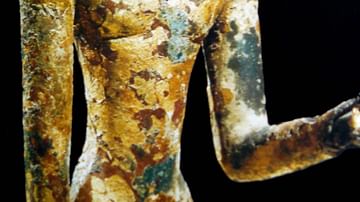
Definition
Phoenician Religion
The Phoenician Religion, as in many other ancient cultures, was an inseparable part of everyday life. Gods such as Baal, Astarte, and Melqart had temples built in their name, offerings and sacrifices were regularly made to them, royalty performed...
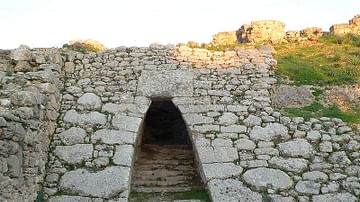
Definition
Ugarit
Ugarit was an important sea port city in the Northern Levant. Though never a world power, Ugarit was a key economic center in the Ancient Near East, serving as a major trade center between Egypt and the major powers of Bronze Age Asia Minor...

Image
Phoenician Ship in a Storm
Artist's rendition of a Phoenician ship at sea during a storm. The Phoenicians were a great maritime people and often adorned their ships with horses' heads to honour Yamm, their god of the sea. Although Yamm could raise the seas to sink...
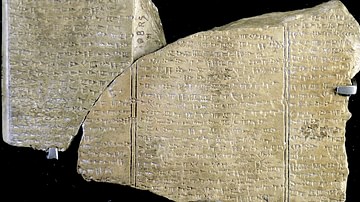
Image
Baal Cycle Tablets
Clay tablets engraved with cuneiform script preserving the Ugaritic poem known as the Baal Cycle, a story featuring gods from Canaanite-Phoenician religion. The Baal Cycle tells the story of the sea god Yamm's conflict with the fertility...
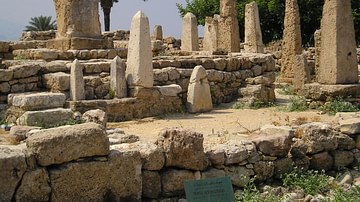
Definition
Byblos
Byblos was the ancient Phoenician port city of Gebal (called Byblos by the Greeks) on the coast of the Mediterranean sea in what is, today, Lebanon. According to the historian Durant, “Byblos thought itself the oldest of all cities; the god...
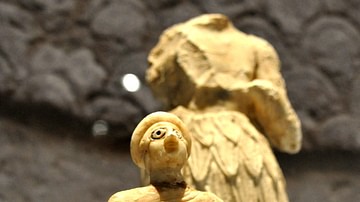
Definition
Religion in the Ancient World
Religion (from the Latin Religio, meaning 'restraint,' or Relegere, according to Cicero, meaning 'to repeat, to read again,' or, most likely, Religionem, 'to show respect for what is sacred') is an organized system of beliefs and practices...